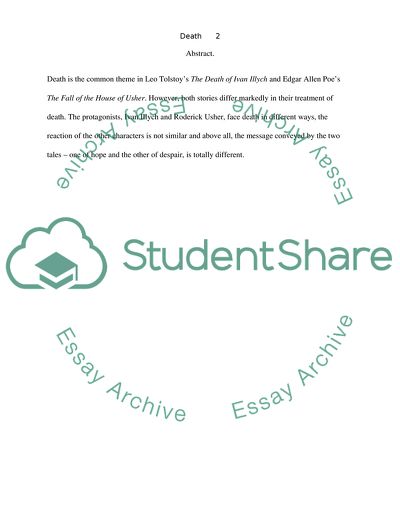Death as a Theme in the Death of Ivan Illych and the Fall of the House of Usher Book Report/Review Example | Topics and Well Written Essays - 1750 words - 3. https://studentshare.org/literature/1712477-response-paper
Death As a Theme in the Death of Ivan Illych and the Fall of the House of Usher Book Report/Review Example | Topics and Well Written Essays - 1750 Words - 3. https://studentshare.org/literature/1712477-response-paper.


